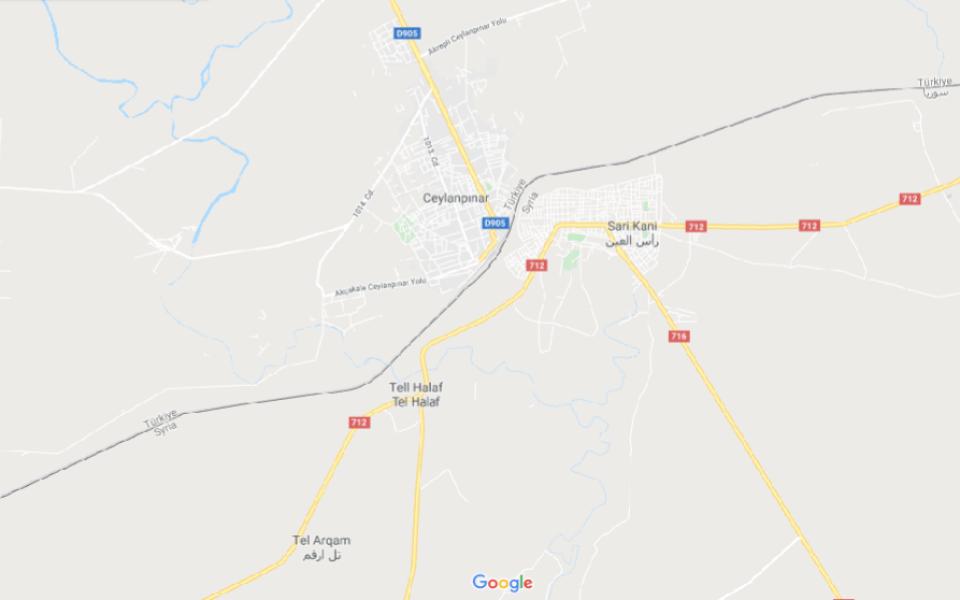“When trucks would show up with
killed and wounded, the medics would come out [of the hospital] to assess
whether they were alive or wounded,” an American volunteer working as a combat
medic with the Syrian Democratic Forces told me. “And if they were alive, we
would bring them in for triage, and then we would take them in for triage and
treatment. The situation deteriorated rapidly. At the first triage point, they
would get preliminary treatment, and they were brought to us for higher care.
That deteriorated. The triage point was air-striked by the Turkish armed forces
two days ago.”
I will call this source “Dave.”
The American volunteer, who has been
in northern Syria for five months, spoke to me on condition of anonymity. The
Syrian Democratic Forces, a Kurdish-led, multi-ethnic militia that has held
northeastern Syria for roughly the past four years, was up until a week ago the
United States’ primary ally in the fight against ISIS — or, we were their
primary ally. Following the pullout of American troops announced on Sunday, the
Syrian Defense Forces hastily entered into an alliance with the Syrian regime
of Bashar al-Assad as its best option for repelling a Turkish invasion from the
north. The sudden withdrawal of US forces puts American volunteers in a legally
tenuous position.
Dave has been working out of the
main hospital in Sari Kani (or Ras al-Ain, as it’s known in Arabic). On Sunday,
he said, they received orders to evacuate the hospital because the fighting was
so close, but the following day the order was reversed. As the Turkish
offensive goes into its seventh day on Wednesday, Sari Kani is among the few cities
in northern Syria that remains under control of the Syrian Democratic Forces.
“The fighting is extraordinarily
intense and extraordinarily desperate,” Dave told me on Monday. “Through a lot
of sacrifice, the SDF has been able to mostly secure the city. There has been
fighting directly outside of the hospital.”
Knowing Dave’s interest in the
Syrian Civil War and sympathies for the Kurds, I texted him on Signal — an
encrypted text, voice and video app — on Oct. 12 to ask if he would recommend
any sources of information on the Turkish offensive.
On Sunday at about 7:20 p.m. — 2:20
a.m. on Monday in Syria — I received a response.
“I’m here,” he said. He continued,
“We just evacuated Sari Kani. I just helped drive ambulances full of civilians
wounded in an airstrike, and I want to talk about it.”
Early Monday afternoon — around 9
p.m. in Syria — I received a call on Signal from Dave.
Dave said while his combat medic
group was evacuating patients from the hospital in Sari Kani, they passed a
convoy of civilian vehicles heading into the city. As soon as they reached
their destination, another hospital about 12 miles away, they learned the
convoy had been hit. Fifteen minutes later, medics started pulling the killed
and wounded off flatbed trucks and putting them in an ambulance. The Syrian
Observatory for Human Rights said the bombing killed 19 people, including 15
civilians and two local reporters.
The
tanks, artillery and aircraft engaged in assaulting Sari Kani and other Syrian
cities is Turkish, but Dave told me that the vast majority of ground forces
fighting against the Kurdish-led Syrian Democratic Forces are Syrian proxies
who fight under the name of the Free Syrian Army.
“It feels
like ISIS, but with airstrikes in terms of their tactics and strategy, and
treatment of civilians,” Dave said.
His assessment is shared by US military officials, according to media reports. On Sunday, NBC quoted unnamed US officials as saying the Turkish-backed militias “include al-Qaida and ISIS supporters,” while reporting that three Kurdish prisons holding ISIS fighters came under attack over the past weekend. A report in Foreign Policy on Monday quoted US officials as saying that the Free Syrian Army was deliberately releasing ISIS fighters.
These
reports directly rebut President Trump’s tweet suggesting that the “Kurds may
be releasing some [of the ISIS prisoners] to get us involved.”
Fighters with the Free Syrian Army are accused of striking brutality. Videos have circulated showing civilians, including a prominent Kurdish politician, being pulled from vehicles and executed by members of the Free Syrian Army, according to Syrian Democratic Forces. The Free Syrian Army has denied responsibility.
Despite
the horrific toll of the war, Dave told me he has seen the Kurds’ determination
firsthand: He said he has had to stop patients from pulling bandages off so
they could go back out and fight.
“These
people are fighting for their homes,” he said. “The reason why this is being
called a war of genocide and displacement is there is no place for them to go.
It’s not just Kurds; it’s also Syrians and Armenians. It’s a multi-ethnic and
pluralist society. That’s what makes this region so important.”
Dave’s
admiration for the Kurds’ multi-ethnic model of shared governance is matched
only by his dismay at the decision by President Trump to withdraw support, and
re-activate ISIS.
“To say this will
destabilize the region — the region is already destabilized,” Dave said. “Hell’s
empty, and the devils are here. This should remind people how precarious our
neoliberal capitalist modernity is. This is happening because of our position
as a superpower and because we have a leader as fickle as Trump.”
Join the First Amendment Society, a membership that goes directly to funding TCB‘s newsroom.
We believe that reporting can save the world.
The TCB First Amendment Society recognizes the vital role of a free, unfettered press with a bundling of local experiences designed to build community, and unique engagements with our newsroom that will help you understand, and shape, local journalism’s critical role in uplifting the people in our cities.
All revenue goes directly into the newsroom as reporters’ salaries and freelance commissions.


Leave a Reply